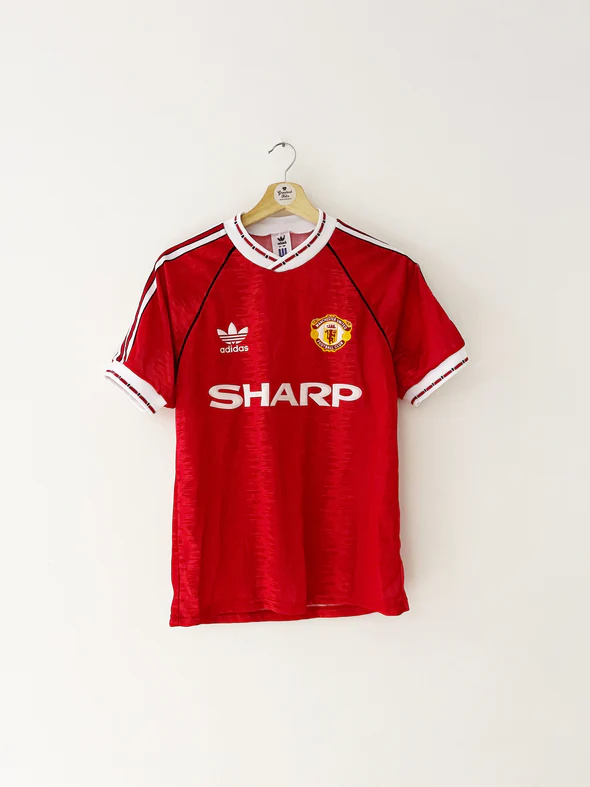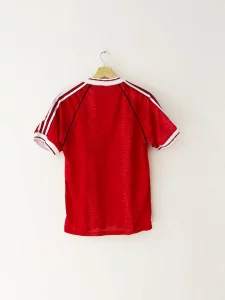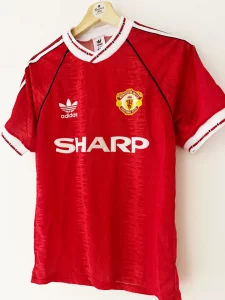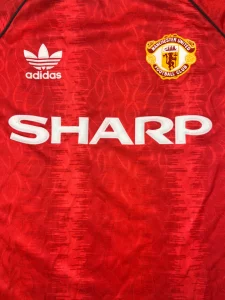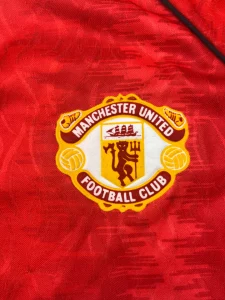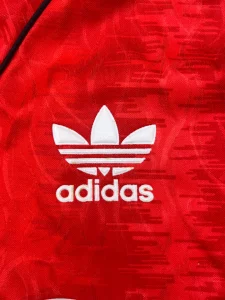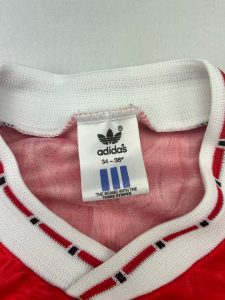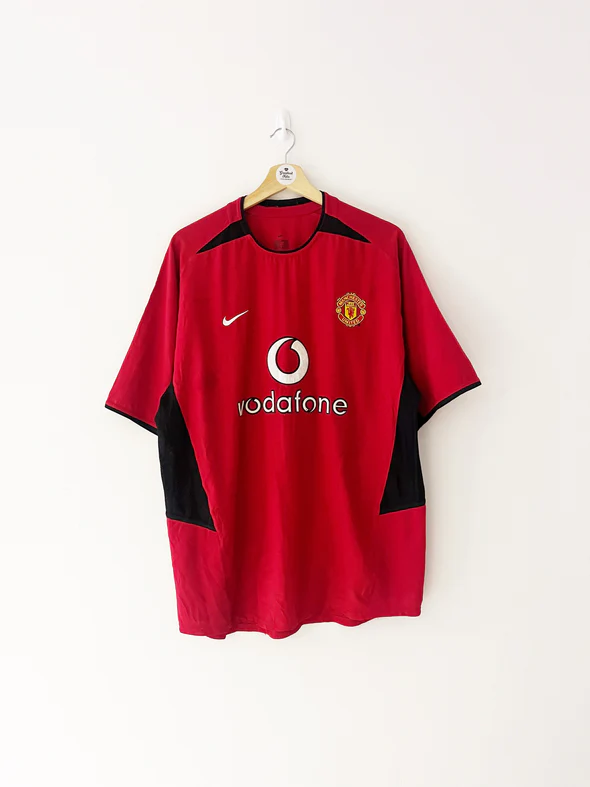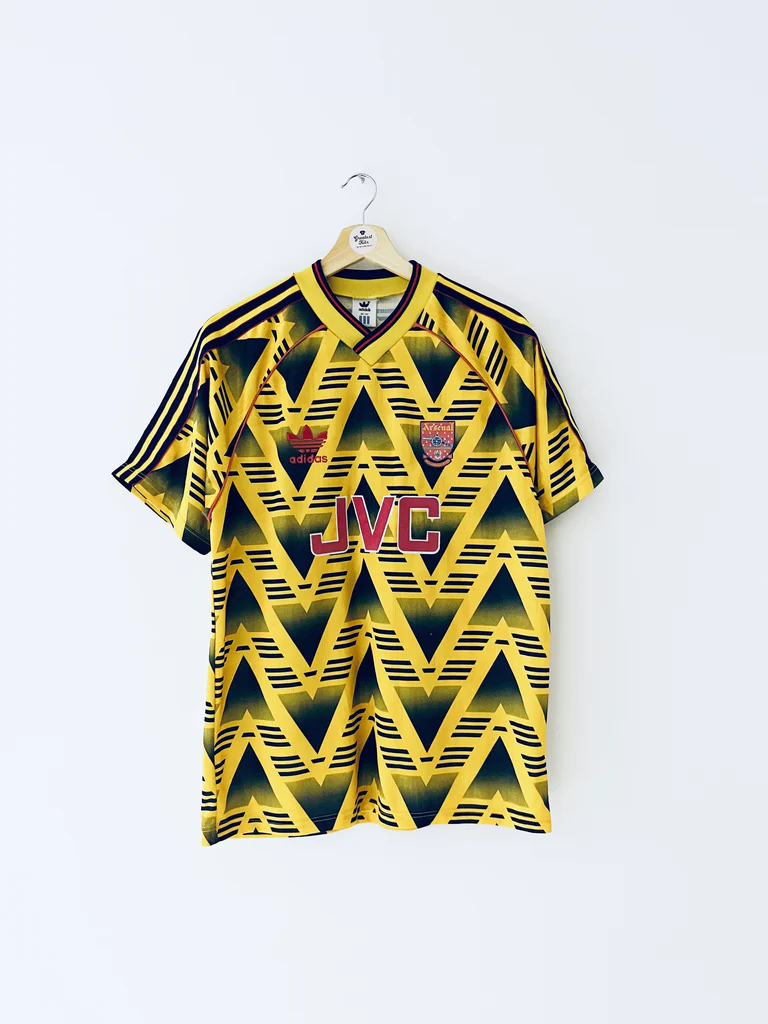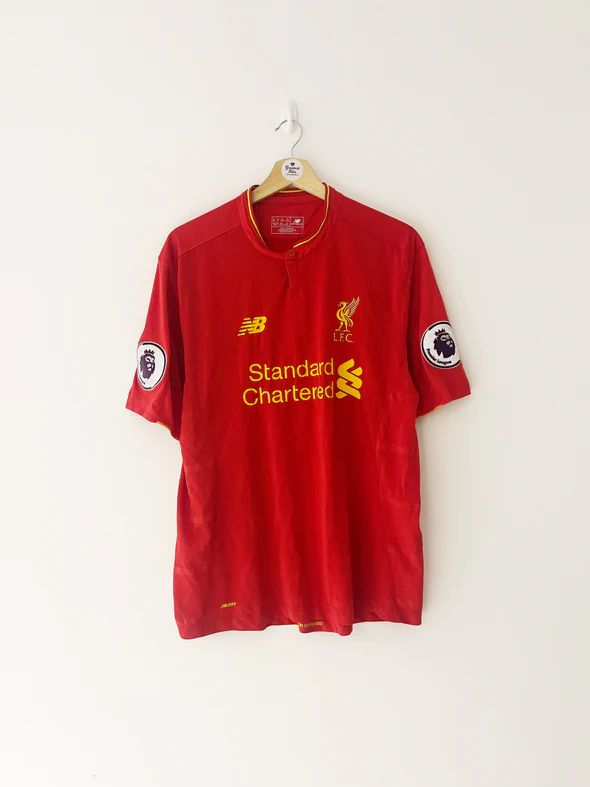Images for this shirt have been carefully researched from genuine sources including greatestkits.co.uk.
1990-92 Manchester United Football Club Home Shirt Authentication Guide
The 1990-92 Manchester United home shirt is one of the most iconic kits in English football history. Worn during the early years of Sir Alex Ferguson’s reign, it represents a transitional period for the club that paved the way for future dominance. This guide helps collectors and fans authenticate this classic piece of football history.
Shirt Overview
- Manufacturer: Adidas
- Sponsor: Sharp Electronics
- Years Worn: 1990 to 1992
- Home Kit Colour: Red with tonal pattern
- Competition Use: English First Division, Domestic Cups, European competitions
Design Details
- Unique tonal geometric print across the shirt (known as the “lace” design)
- Classic Adidas trefoil logo embroidered on the chest
- Sharp sponsor logo in white with red outline (screen printed)
- Fold-over white collar with red and black triangular trim
- Buttoned neckline with two buttons
- Adidas three stripes on shoulders in white
- Long and short sleeve variants available
- Made in the UK or Yugoslavia (check label)
Variants and Notes
- 1990-91 vs 1991-92 versions: Subtle differences in collar and button stitching
- Replica vs Player Issue: Player shirts may feature embroidered rather than printed club crest
- Labels: Early shirts have a blue Adidas size label; later ones may have black with white text
- Long sleeve shirts are rarer and usually command a higher value
- Occasionally worn with white shorts and black socks, particularly in European matches
Player Info
| Player | Appearances (All Competitions) |
|---|---|
| Bryan Robson | 51 |
| Mark Hughes | 56 |
| Steve Bruce | 54 |
| Gary Pallister | 57 |
| Paul Ince | 45 |
| Lee Sharpe | 43 |
| Clayton Blackmore | 48 |
| Denis Irwin | 41 |
| Ryan Giggs | 2 (debut season: 1990–91) |
| Brian McClair | 55 |
Season Summary
The 1990-91 season was notable for Manchester United winning the European Cup Winners’ Cup, beating Barcelona 2–1 in the final. Domestically, the club finished 6th in the league but showed great promise. The following 1991-92 season saw continued development with a second-place league finish and victory in the League Cup. These years marked the emergence of talents like Ryan Giggs and solidified the backbone of the squad that would go on to dominate English football in the coming decade.

